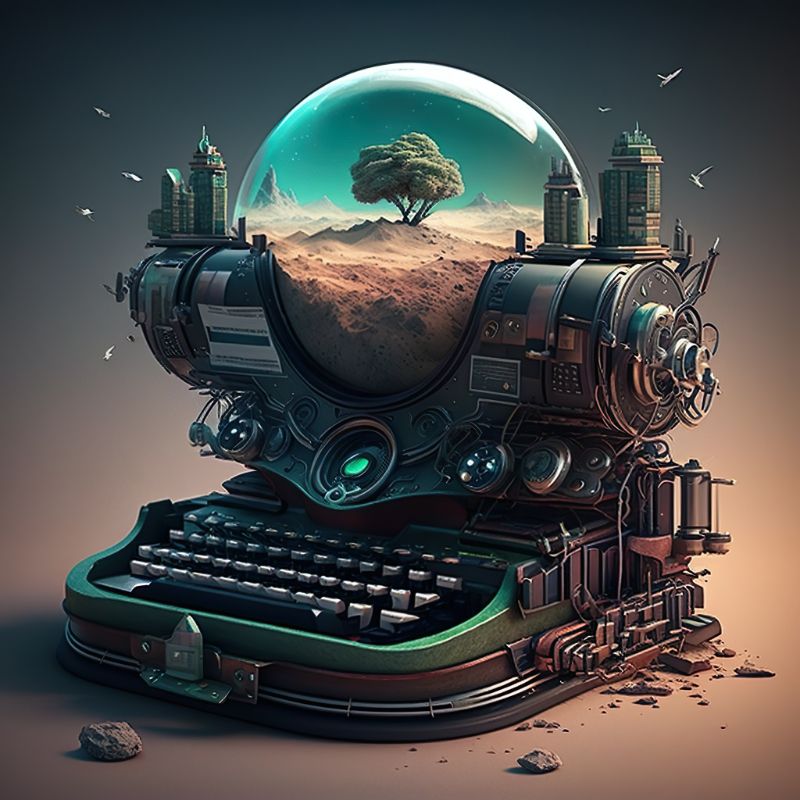Sci-Fi – Not Aliens and Cowboys Anymore!
When we think of Sci-Fi, we think of Star Wars, Star Trek, and Aliens abducting humans or robots coming for our lives. Wait. That last one seems a little close to reality. However, there is a different lens to Sci-Fi that a group of diverse and award-winning authors highlight in a recent media briefing. Sci-Fi is a lens that can be used to reimagine the future and solve issues we face today: climate change and inequality to name a few. A panel of writers and experts discuss how the stereotypical sci-fi features aren’t relevant to our world anymore.
Speakers

- Ericka A. Hoagland, Associate Professor & Coordinator of Graduate Studies, English & Creative Writing, Stephen F. Austin State University; Co-Author of Science Fiction, Imperialism, and the Third World
- Libia Brenda, Writer, Editor, and Translator, based in Mexico City; Climate Imagination Fellow, Center for Science and the Imagination, Arizona State University
- Ken Liu, American Author of speculative fiction; winner of the Nebula, Hugo, and World Fantasy awards; winner of top genre honors in Japan, Spain, and France
- Isis Asare, CEO/Founder of Sistah Scifi, first Black-owned bookstore focused on science fiction & fantasy in the US, validated by the American Booksellers Association
- Samit Basu, Indian Novelist and Filmmaker whose body of work includes science fiction, fantasy and superhero novels, children’s books, graphic novels, short stories, and nonfiction
Science fiction has long been a popular genre of literature, with authors like Isaac Asimov, Arthur C. Clarke, and Ursula K. Le Guin making significant contributions to the field. However, today’s readers are also interested in the works of new authors from different parts of the world, who are putting their spin on sci-fi.
In recent years, there has been a growing trend of global authors creating new and exciting sci-fi stories that challenge the traditional norms of the genre. These authors come from diverse backgrounds and bring unique perspectives that add depth and richness to their writing.
We are now seeing more diverse writers in a space predominantly taken up by white male writers according to Ericka Hoagland. Ericka highlights Vandana Singh’s Mother Ocean, a story about the protagonist learning the language of one of the last blue whales after sea levels rise and displace so many communities. “She helps to get rid of this meshing and saves the whale’s life. But more importantly, she learns to speak the whale’s language.” This an example of how new diverse writers are redefining the meaning behind science fiction “in fundamentally beautiful and important ways.”
Climate change and having an optimistic outlook on the future has been at the forefront of the shift behind sci-fi. Libia Brenda has been a prominent figure in tackling climate change with a sci-fi lens. “… we are kind of tired of the dystopian futures and we are fed up with the male, super-vertical, super-masculine, super-commercial science fiction. So, we try to imagine a future based on hope. We are not imagining a world that is impossible. We are imagining a world that is the product of a change.” Brenda points out that these stories aren’t completely fictitious. It is a collaborative effort with scientists and artists to show what our future could look like.
Looking at sci-fi from a technology perspective, award-winning author Ken Liu describes Sci-Fi as an opportunity to “punkify” traditional East Asian technologies. His work often explores the intersection of technology, culture, and identity, and has gained popularity among readers around the world. Liu says, “When we speak about indigenous or so-called non-Western philosophy, we speak of them as though they are not relevant in modernity, they are just alternative ways in the past.” Talking to people from various communities, Liu highlights “…one common refrain I hear is a sense of not feeling entirely at home in modernity.”
Afrofuturism is another area where Sci-Fi flourishes and the best example of this is Black Panther. According to Isis Asare, “Looking at black literature, historically, there’s a lot of concentration in urban fiction, there’s a lot of concentration in celebrity biographies, but there wasn’t a lot of focus on black speculative fiction.” However, there is a shift and a renewed interest in Afrofuturism.
These new voices in sci-fi are bringing fresh perspectives and ideas to the genre and are helping to make it more diverse and inclusive. They are also inspiring a new generation of readers and writers to explore the possibilities of science fiction, and to think critically about the world around them.
According to Samit Basu, “All over the world, we are essentially dealing with the same problems. But the specific local settings of those problems are dependent on the local cultures where people are experiencing them.”
In conclusion, science fiction is an ever-evolving genre that continues to captivate readers around the world. The works of new and diverse authors are adding to the richness and complexity of the genre and are helping to ensure that sci-fi remains relevant and exciting for years to come.


